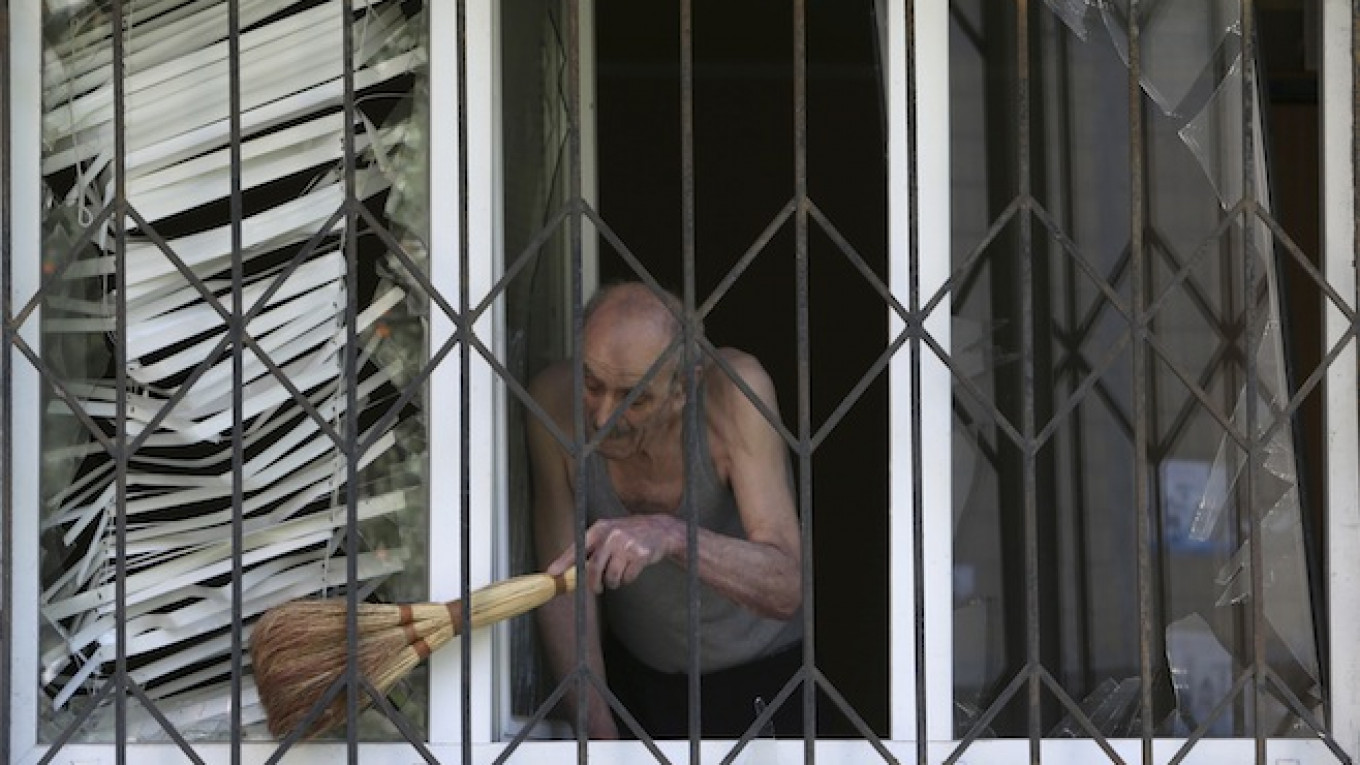KIEV — Ukraine's economic decline has accelerated as fighting between the army and pro-Russian separatists in the east took a heavy toll on industry and other economic activity in the last three months.
The national statistics office said Wednesday that the economy contracted by 4.7 percent in the second quarter compared with the same period last year and shrank by 2.3 percent in the three months from April, when the separatist rebellion began, to June.
That followed a 1.1 percent fall in gross domestic product in the first three months of the year and reflected the impact of the conflict on industry in two eastern regions that usually contribute almost 16 percent of Ukraine's GDP.
"The main reason [for the drop] is that we have military activity in which people get killed, are displaced and leave their homes," said Oleksandr Valchishen of InvestCapital Ukraine. "We're in a state of a shock."
Ukraine's economy went into recession in the second half of 2012 and there was no growth in 2013.
Kiev initially expected a 3 percent contraction in the whole of 2014 but the conflict has put additional strains on the state budget and deepened Ukraine's economic turmoil.
Timothy Ash, head emerging markets analyst at Standard Bank in London, said the data "suggested a much sharper hit to economic activity" from the fighting in the Donbass coal mining region of east Ukraine.
"This...likely takes H1 real GDP down by 3 percent, which was the government's earlier full-year assumption. Since then the government/IMF have been busily revising down growth assumptions for the year as the conflict in the Donbass has panned out," he said.
\\International Aid
The International Monetary Fund now sees Ukraine's GDP falling by 6.5 percent this year despite the lender's $17 billion bailout, of which the first tranche of $3.2 billion has already been disbursed.
The funding was agreed after Ukraine ousted a president sympathetic to Russia, which responded by annexing the Crimea peninsula and, according to the West, supporting the rebellion in the mainly Russian-speaking east. Moscow denies arming the rebels.
The IMF deal effectively replaced a Russian bailout deal that Moscow halted after Ukraine's former, Russia-friendly president Viktor Yanukovych was ousted in February.
"The deterioration will continue in the coming quarters, especially in the third quarter," said Oleksandr Pecherystyn of Credit Agricole in Kiev. "The same negative factors will have an effect in the coming quarters."
He said a decline in the value of the hryvnia national unit had also had an impact on the wider economy.
The economy may also take a hit from Western sanctions being imposed on Russia, which remains Kiev's largest single foreign trade partner, even though its goods exports to Russia have fallen from about a quarter of all exports before the crisis to less than 20 percent.
Ukraine's parliament is due to consider amendments to the budget requested by Prime Minister Arseniy Yatsenyuk which the government says are needed to fund the army fighting in the east, among others.
It has urged the IMF to take into account the extra spending from the strained budget that is going to the military campaign.
Yatsenyuk, who tendered his resignation in protest last week after lawmakers rejected the laws at the first attempt, said they were also needed to protect deals with international lenders including the IMF, and that Ukraine would default without them.
See also:
A Message from The Moscow Times:
Dear readers,
We are facing unprecedented challenges. Russia's Prosecutor General's Office has designated The Moscow Times as an "undesirable" organization, criminalizing our work and putting our staff at risk of prosecution. This follows our earlier unjust labeling as a "foreign agent."
These actions are direct attempts to silence independent journalism in Russia. The authorities claim our work "discredits the decisions of the Russian leadership." We see things differently: we strive to provide accurate, unbiased reporting on Russia.
We, the journalists of The Moscow Times, refuse to be silenced. But to continue our work, we need your help.
Your support, no matter how small, makes a world of difference. If you can, please support us monthly starting from just $2. It's quick to set up, and every contribution makes a significant impact.
By supporting The Moscow Times, you're defending open, independent journalism in the face of repression. Thank you for standing with us.
Remind me later.






